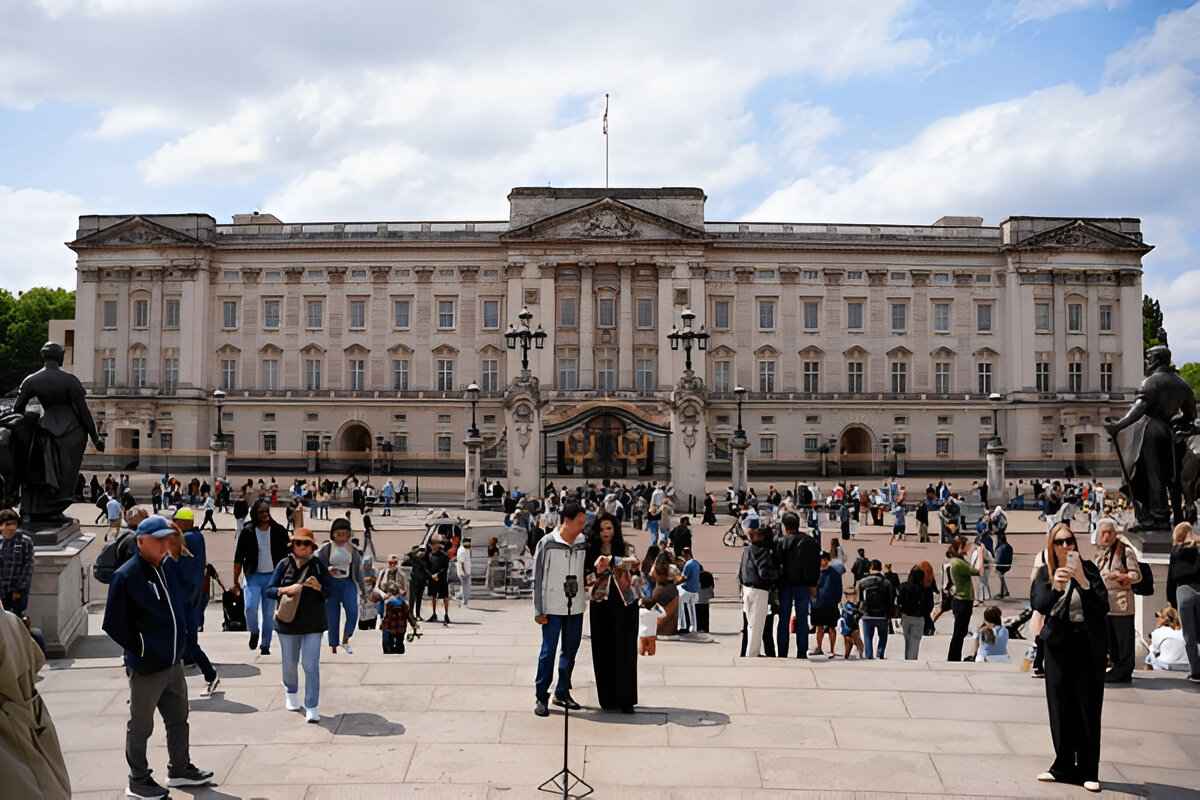Brew, Banter & Britannia: Unpacking UK Charm

You’re sitting in a cozy pub, the kind with creaky wooden floors and a fireplace that’s seen more winters than your gran’s favorite scarf. The air smells faintly of ale, chips, and history. Outside, the rain is doing its classic British drizzle, because of course it is. You’re sipping a proper cuppa or maybe a pint, and someone at the next table is arguing about whether Coronation Street is better than EastEnders. Welcome to the UK, where charm oozes from every cobblestone, tea kettle, and sarcastic quip. Let’s unpack what makes this quirky island nation so uniquely captivating, shall we?
The Art of the Brew
Let’s start with the lifeblood of Britain: tea. If you’ve never seen a Brit clutch a mug of tea like it’s the Holy Grail, you’re missing out on a cultural cornerstone. Tea isn’t just a drink here—it’s a ritual, a comfort blanket, and sometimes a full-blown personality trait. Walk into any British home, and within five minutes, someone’s asking, “Fancy a cuppa?” It’s not really a question; it’s a command. Say no, and you’re basically declaring war on politeness.
The process is sacred. Boil the kettle, warm the teapot (if you’re old-school), steep the bag or leaves for just the right amount of time, and then comes the great milk debate: before or after? Some swear by splashing milk in first, claiming it makes the tea smoother. Others, the after-milk purists, will look at you like you’ve suggested putting ketchup on toast if you dare pour it first. And don’t even get me started on sugar—two sugars are fine, but three? You’re basically a dessert at that point.
Tea is so embedded in the culture that it’s practically a diplomatic tool. According to a 2018 survey by YouGov, 68% of Brits drink at least one cup of tea a day, and 37% have three or more. It’s the glue that holds the nation together during crises, from World War II to a rainy Tuesday afternoon. If aliens landed tomorrow, the Prime Minister would probably offer them a cuppa before negotiating intergalactic peace.
Banter: The National Sport
If tea is Britain’s lifeblood, banter is its heartbeat. Brits don’t just talk—they spar, verbally. Banter is the art of saying something witty, cheeky, or downright savage while keeping a straight face or a sly grin. It’s not about being mean; it’s about connection. You know you’re mates with someone when they take the mickey out of your dodgy haircut, and you fire back with a quip about their questionable taste in trainers.
Take the workplace, for example. In the UK, you’re not colleagues—you’re comrades in a never-ending roast. A classic line might be, “Nice shirt, Dave, did you borrow it from your nan’s curtains?” The trick is to laugh it off and hit back harder. It’s a skill, honed over years of pub chats and family gatherings. Foreigners sometimes mistake it for rudeness, but it’s just how Brits say, “I like you enough to tease you.” If they’re being overly polite, you’re probably in trouble.
Banter extends beyond mates, though. It’s in the way a London cabbie calls you “mate” while ranting about traffic, or how a shopkeeper in Yorkshire tells you the weather’s “bloody rubbish” with a twinkle in their eye. It’s the dry humor of a BBC presenter slipping a pun into the news or the way your server at a chippy smirks when you ask for “extra mushy peas.” Fun fact: if you ever hear a Brit say, “You alright?” don’t answer with your life story—they’re just saying hi.
Britannia’s Quirky Charm
The UK’s charm isn’t just in its tea or banter—it’s in the little quirks that make you go, “Only in Britain.” Take the weather, for instance. Brits are obsessed with it, and for good reason—it’s like Mother Nature’s playing a prank. One minute it’s sunny, the next it’s pouring, and by lunchtime, it’s foggy. You’ll see people carrying umbrellas in July and wearing shorts in February. The Met Office, Britain’s weather service, is practically a national treasure, with its forecasts dissected like a Shakespeare play. Check out their site for a taste of the chaos: Met Office.
Then there’s the queue. Oh, the queue. Brits don’t just line up—they elevate queuing to an art form. Whether it’s for a bus, a pint, or a glimpse of the King’s corgis, they’ll form an orderly line with a patience that borders on saintly. Cut the queue, and you’ll feel the collective weight of a thousand disapproving tuts. It’s not just about order; it’s about fairness. Everyone gets their turn, even if it means standing in the rain for 20 minutes.
And let’s not forget pub culture. The pub is the heart of any British community, a place where you can nurse a pint, argue about football, or eavesdrop on a heated debate about the best crisp flavor (Spoiler: it’s salt and vinegar). Pubs aren’t just for drinking—they’re for storytelling, flirting, and solving the world’s problems over a packet of pork scratchings. Each one has its own vibe, from the sticky-floored local to the gastropub serving artisanal burgers. Funniest pub moment I’ve heard: a mate once saw a guy propose in a pub, only for his girlfriend to say, “Not until you stop ordering Carling.”
The British Obsession with Politeness
If there’s one stereotype about Brits that holds water, it’s their politeness. They’ll apologize for bumping into a lamppost, say “cheers” for literally anything, and thank the bus driver even if the ride was bumpier than a rollercoaster. This politeness is a social lubricant, smoothing over awkward moments and keeping things civil. But don’t be fooled—it’s not always genuine. A Brit saying, “No worries, mate,” might secretly mean, “You’ve ruined my day, but I’m too polite to say it.”
This obsession with manners ties into the British love of understatement. Where an American might say, “This is the worst day ever,” a Brit will mutter, “Bit of a faff, isn’t it?” A torrential downpour is “a bit damp,” and a near-death experience is “a tad inconvenient.” It’s not that they’re unemotional—it’s just that they’d rather die than make a fuss.
History in Every Corner
You can’t talk about UK charm without mentioning its history. The UK is like a living museum, with castles, cathedrals, and Roman ruins popping up like they’re no big deal. Walk through London, and you’re stepping on ground that’s seen Vikings, plagues, and the Beatles. Visit Edinburgh, and you’re in a city that feels like it’s half medieval, half Hogwarts. Even small villages have stories—like that one pub in Dorset that claims it’s haunted by a 17th-century smuggler.
This history isn’t just in buildings; it’s in the culture. Brits love a good tradition, whether it’s afternoon tea, Morris dancing, or shouting “God Save the King” at the top of their lungs. Some traditions are downright bizarre, like the Gloucestershire cheese-rolling race, where people chase a wheel of cheese down a hill and hope they don’t break their legs. Google it—it’s as bonkers as it sounds.
Food: More Than Just Fish and Chips
Let’s talk food, because British cuisine gets a bad rap, and it’s not entirely fair. Sure, fish and chips are iconic—crispy batter, flaky cod, and a pile of chips that could feed a small army. But there’s more to it. A Sunday roast with Yorkshire puddings is a hug on a plate. A full English breakfast—eggs, bacon, sausage, beans, tomatoes, mushrooms, and toast—will keep you full until next Tuesday. And don’t sleep on the curry. Thanks to its multicultural history, the UK has some of the best Indian food outside India. Head to Brick Lane in London for a curry that’ll make your taste buds sing.
Desserts are another win. Sticky toffee pudding, scones with clotted cream, and custard tarts are proof that Brits know their way around sugar. Oh, and if you’re ever offered a “bicky,” say yes—it’s just a biscuit, but it’s basically a hug in edible form.
The Modern UK: A Melting Pot
The UK isn’t stuck in the past, though. It’s a melting pot, with influences from every corner of the globe. London’s as likely to have a Caribbean jerk stall as a pie-and-mash shop. Festivals like Notting Hill Carnival bring color and rhythm to the streets, while cities like Manchester and Birmingham hum with diversity. This blend of old and new is part of the charm—ancient cathedrals sit next to sleek skyscrapers, and you can grab a flat white in a café that’s been around since the 1700s.
Why the UK Stays Charming
So, what ties all this together? It’s the way the UK leans into its quirks without apology. The tea, the banter, the queues, the pubs—it’s all part of a nation that’s comfortable in its own skin, rain and all. Brits know their country isn’t perfect, but they love it anyway, and that’s infectious. You don’t visit the UK for postcard perfection; you visit for the stories, the laughs, and the feeling that you’re part of something wonderfully, gloriously odd.
Next time you’re in Britain, grab a cuppa, join the queue, and throw yourself into the banter. You might get a few funny looks for your accent, but don’t worry—someone will probably say, “Nice try, mate,” and offer you a biscuit. And if all else fails, just remember: when in doubt, put the kettle on. It’s the British way.
